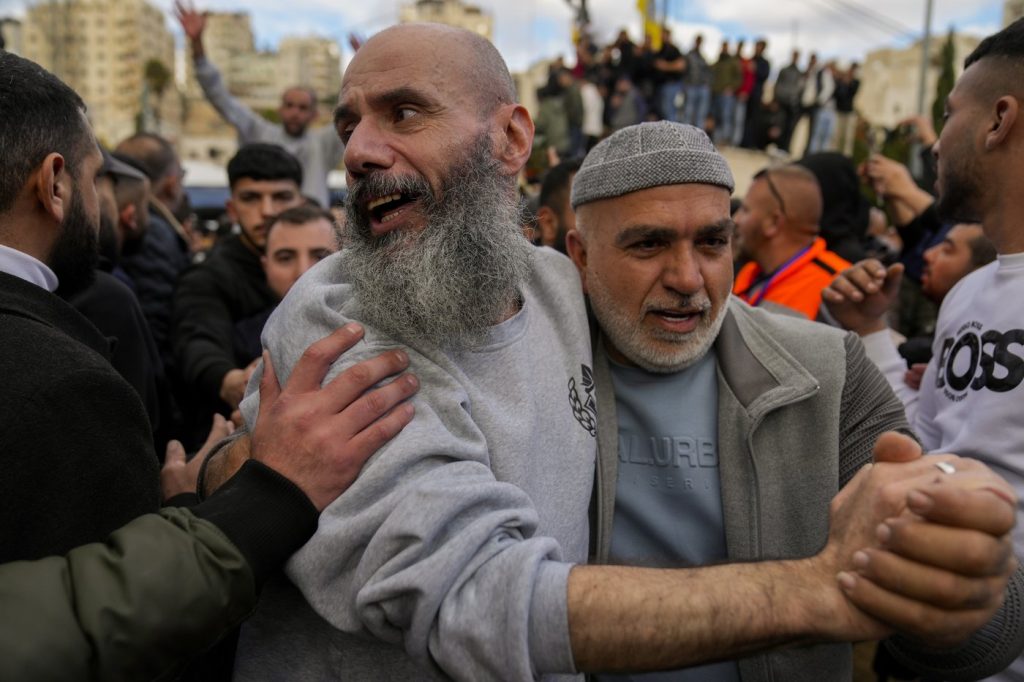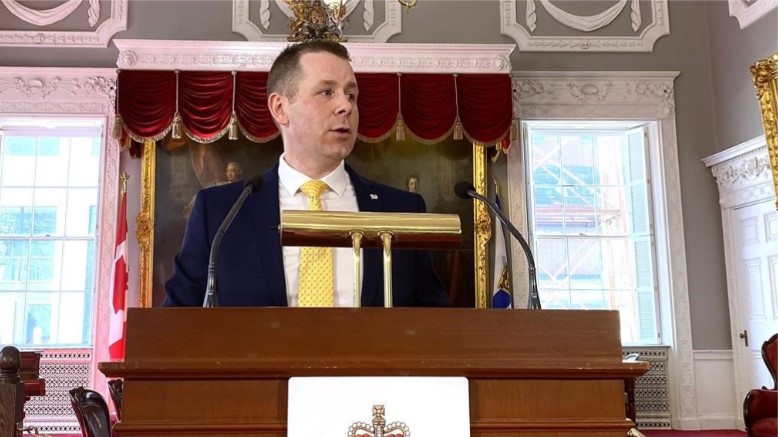Who are the Palestinian prisoners released in exchange for Israeli hostages?

Posted Jan 25, 2025 04:08:48 PM.
Last Updated Jan 25, 2025 04:15:31 PM.
RAMALLAH, West Bank (AP) — The release of four female Israeli soldiers from Hamas captivity on Saturday came at a heavy cost for Israel.
Israel released 200 Palestinian prisoners, 120 of them serving life sentences, from its jails as part of a ceasefire deal. They ranged in age from 16 to 67.
Some were set free into an exuberant West Bank, while those whose offenses were considered too serious were transferred to Egypt.
In the West Bank city of Ramallah on Saturday, dozens of freed Palestinians, all looking wan and thin in stained gray Israeli prison jumpsuits, disembarked from a white Red Cross bus. They launched themselves into a jubilant crowd.
The images dredged up trauma for Israelis whose loved ones were killed by some of those released.
Moshe Har Melech, whose son was killed in a Palestinian shooting attack in 2003, said that he was sickened by the released prisoners being greeted as “superheroes” and warned that even exile was no deterrent.
“They’ll continue remotely recruiting and establishing terrorist cells,” he said. “But this time, they’ll be more experienced.”
Adrenalized teenagers streamed the revelry on social media, and mothers wept as they hugged their sons for the first time in years.
“It can’t be described. To be between your mother and father, it’s an indescribable feeling,” said Azmi Nafaa, accused of trying to ram his vehicle into Israeli soldiers at a checkpoint in 2015 and sentenced to 20 years in prison.
After nine years in prison, Nafaa hugged his mother, Hadiya Hamdan. She suggested that she cook meat dumplings in yogurt sauce, and he laughed, suggesting instead the more elaborate “mansaf,” a Bedouin dish of lamb and rice.
“That will be difficult for you,” he said.
“No,” she replied. “Nothing will be difficult.”
There was no such reception for the 70 prisoners sent into exile, whose convoy made its way south and quietly slipped through Gaza’s Rafah border crossing into Egypt.
Underscoring the challenges for Israel, the reception for prisoners in Ramallah, the seat of the Palestinian Authority, revealed an outpouring of support for the rival Hamas group. Many young Palestinians waved the bright green flags of Hamas and called on the militant group to capture more Israelis in order to free all the prisoners.
Hard-line commentators criticized the deal as justice undone and capitulation to the enemy.
“A deal that releases brutal murderers … endangers the lives of more Israelis down the road,” David M. Weinberg, a senior fellow at the conservative research group Misgav, wrote in the Makor Rishon right-wing newspaper. “And that road is not particularly long.”
Here’s a look at the more prominent Palestinian prisoners released on Saturday.
Mohammed Aradeh, 42
An activist in Palestinian Islamic Jihad, Aradeh, was sentenced to life in prison for a range of offenses going back to the second intifada, or uprising against Israel’s occupation in the early 2000s. Some of the charges, according to the Israeli Prison Service, included planting an explosive device and attempting murder.
He was credited with plotting an extraordinary prison escape in 2021, when he and five other detainees used spoons to tunnel out one of Israel’s most secure prisons. They remained at large for days before being caught.
From an impoverished and politically active family Jenin, in the northern occupied West Bank, Aradeh has three brothers and a sister who have all spent years in Israeli prison.
He was welcomed as a sort of cult hero in Ramallah on Saturday as family, friends and fans swarmed him, some chanting “The freedom tunnel!” in reference to his prison escape. When asked how he felt, Aradeh was breathless.
Over and over he muttered, “Thank God, thank God.”
Mohammed Odeh, 52, Wael Qassim, 54, and Wissam Abbasi, 48
All three men hail from the neighborhood of Silwan, in east Jerusalem, and rose within the ranks of Hamas. Held responsible for a string of deadly attacks during the second intifada, the men were sentenced to multiple life sentences in Israeli jail in 2002.
They were accused of plotting a suicide bombing at a crowded pool hall near Tel Aviv in 2002 that killed 15 people. Later that year, they were found to have orchestrated a bombing at Hebrew University that killed nine people, including five American students. Israel had described Odeh, who was working as a painter at the university at the time, as the kingpin in the attack.
All three were among those transferred to Egypt. Their families all live in Jerusalem.
The Abu Hamid brothers
Three brothers from the prominent Abu Hamid family of the Al-Amari refugee camp in Ramallah — Nasser, 51, Mohammad, 44, and Sharif, 48 — were deported together on Saturday. They had been sentenced to life in prison over deadly militant attacks against Israelis in 2002.
Their brother, a different Nasser Abu Hamid, was one of the founders of the Al-Aqsa Martyrs’ Brigade — an armed militia affiliated with Fatah, the secular political party that controls the Palestinian Authority.
He was also sentenced to life in prison for several deadly attacks. His 2022 death from lung cancer behind bars unleashed a wave of angry protests and strikes across the West Bank as Palestinian officials accused Israel of medical neglect.
The family has a long arc of Palestinian militancy. The mother, Latifa Abu Hamid, 72, now has three sons exiled, one still imprisoned, one who died in prison and one who was killed by Israeli forces. Their family house has been demolished at least three times by Israel, which defends such punitive home demolitions as a deterrent against future attacks.
Mohammad al-Tous, 67
Al-Tous had held the title of longest continuous Israeli imprisonment until his release on Saturday, Palestinian authorities said.
First arrested in 1985 while fighting Israeli forces along the Jordanian border, the activist in the Fatah party spent a total of 39 years behind bars. Originally from the West Bank city of Bethlehem, he was among the prisoners exiled to Egypt.
Isabel Debre, The Associated Press








